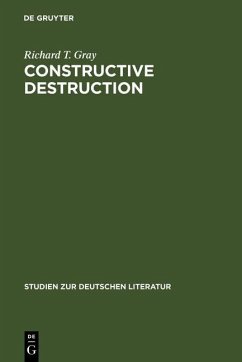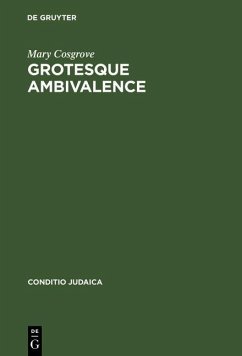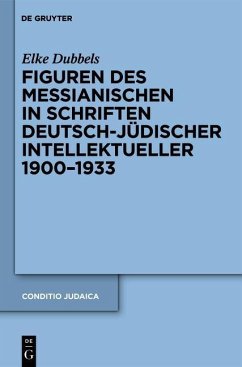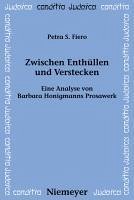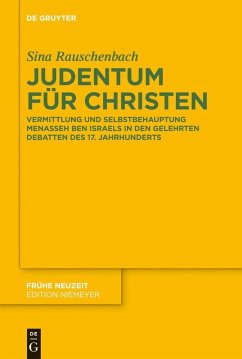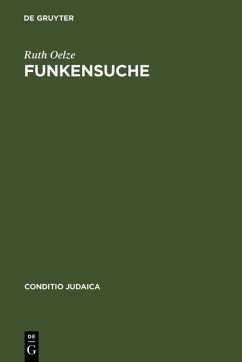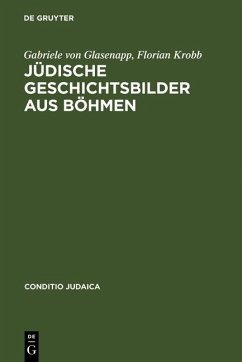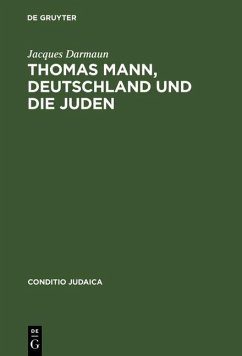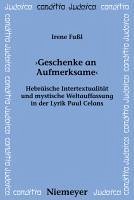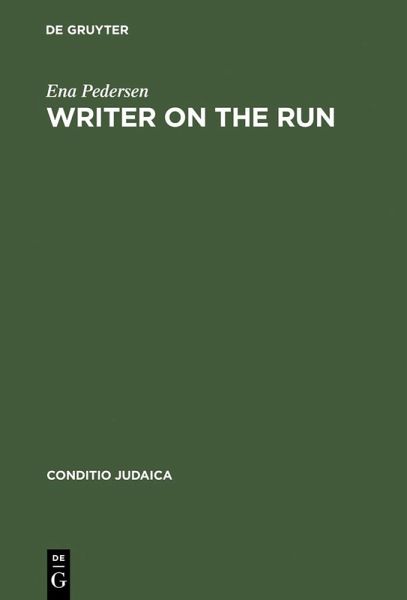
Writer on the Run (eBook, PDF)
German-Jewish Identity and the Experience of Exile in the Life and Work of Henry William Katz
Versandkostenfrei!
Sofort per Download lieferbar
77,95 €
inkl. MwSt.
Weitere Ausgaben:

PAYBACK Punkte
39 °P sammeln!
This is the first academic treatment of the life and work of the German-Jewish writer, Henry William Katz (1906-1992), who was exiled from Nazi Germany in 1933. From a combined literary, historical, biographical and sociological perspective, Ena Pedersen analyses Katz's depiction of the Eastern European Jews in Galicia, Weimar Germany and in exile, focusing on the problems of anti-Semitism, assimilation, German-Jewish symbiosis, and Jewish identity in the Diaspora. Narratorial technique and structuring principles of his works are examined carefully as is the development of themes and charact...
This is the first academic treatment of the life and work of the German-Jewish writer, Henry William Katz (1906-1992), who was exiled from Nazi Germany in 1933. From a combined literary, historical, biographical and sociological perspective, Ena Pedersen analyses Katz's depiction of the Eastern European Jews in Galicia, Weimar Germany and in exile, focusing on the problems of anti-Semitism, assimilation, German-Jewish symbiosis, and Jewish identity in the Diaspora. Narratorial technique and structuring principles of his works are examined carefully as is the development of themes and characters from his early journalism through to his later fiction. The book further contains the first biography of Katz's life, based on interviews with friends and relatives of Katz in Germany, France and the USA, as well as an analysis of his journalistic articles and political engagement with the SPD in the context of the crisis of left-wing journalism towards the end of the Weimar Republic. Through comparisons with contemporary Weimar journalists such as Alfred Polgar and Kurt Tucholsky, as well as Jewish and non-Jewish writers in exile such as Joseph Roth, Martin Beradt, Lion Feuchtwanger and Ernst Glaeser, Katz is placed within the body of Weimar journalism, German exile literature, and Jewish ghetto literature. Through her analysis of his works, Ena Pedersen shows how Katz conforms to the patterns of German-Jewish exile literature yet stands out from his contemporaries through his focus on the Eastern European Jews, describing in a uniquely personal and yet often sarcastic and critical way the particular concerns and dilemmas of this minority within the German-Jewish community at the time.
Dieser Download kann aus rechtlichen Gründen nur mit Rechnungsadresse in A, B, BG, CY, CZ, D, DK, EW, E, FIN, F, GR, HR, H, IRL, I, LT, L, LR, M, NL, PL, P, R, S, SLO, SK ausgeliefert werden.




